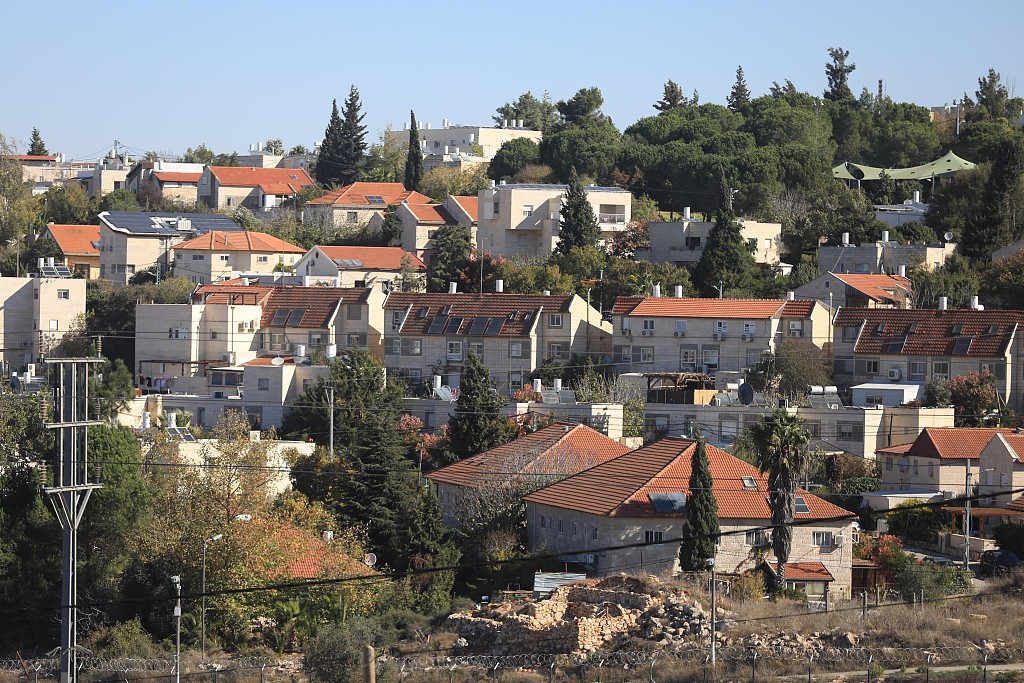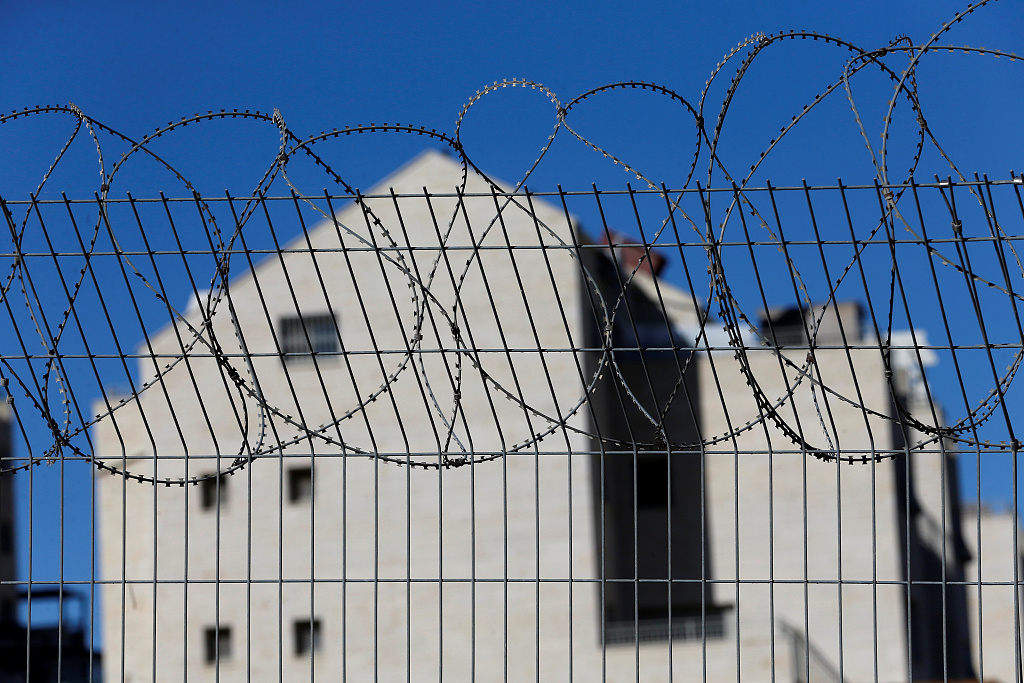Israel's defense minister announced plans to build a new Jewish-only settlement in the heart of a flashpoint West Bank city on Sunday, weeks after the U.S. said it no longer considered such communities illegal.
Defense minister Naftali Bennett said the new development would double the Jewish population in the city, where around 800 settlers live guarded by hundreds of Israeli soldiers, surrounded by some 200,000 Palestinians.
Hebron is holy to both Muslims and Jews and sees frequent clashes between Palestinians and Israeli forces.
The Defense Ministry said Bennett had instructed departments responsible for the Israeli-occupied West Bank to notify the Hebron municipality of planning a new Jewish neighborhood in the wholesale market complex.

A general view of Halamish Jewish settlement in Ramallah, West Bank. /VCG Photo
A general view of Halamish Jewish settlement in Ramallah, West Bank. /VCG Photo
The street is now largely closed off to Palestinians, who have long demanded that it be reopened.
Senior Palestinian official Saeb Erekat said the new project was a result of the U.S.' November 18th decision to no longer consider Israeli settlements illegal.
The Bennett plan, Erekat wrote in English on Twitter, "is the first tangible result of the U.S. decision to legitimize colonization."
Earlier this month, a UN spokesperson said that the UN very much regrets the announcement of the new U.S. position and reaffirmed its commitment to a two-State solution based on the relevant UN resolutions.
A statement from a settlers' organization said the decision was a historic act of justice for the Jewish people, saying that it would "bring Jewish life back to Jewish property in Hebron."

A fence is seen at the Jewish settlement of Kiryat Arba in Hebron, in the Israeli-occupied West Bank, November 19, 2019. /VCG Photo
A fence is seen at the Jewish settlement of Kiryat Arba in Hebron, in the Israeli-occupied West Bank, November 19, 2019. /VCG Photo
Bennett's move comes amid political turmoil in Israel after general elections in April and September ended in deadlock.
Neither Prime Minister Benjamin Netanyahu and allies like Bennett, nor their opponents, won enough parliamentary seats to form a viable coalition.
At Sunday's weekly cabinet meeting, Prime Minister Netanyahu pledged to offer 40 million shekels (11.5 million U.S. dollars) for improved security in settlements across West Bank and the Jordan Valley.
"We are strengthening the security components in the communities in Judea and Samaria, of the Israeli citizens there," he said, using the biblical terms for the West Bank.